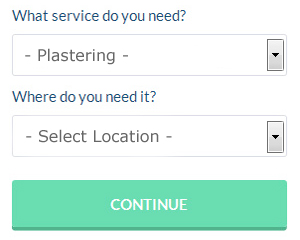Crosscanonby Plasterers: If you have some plastering that needs doing on your home in Crosscanonby, you will be looking for a competent and professional plasterer to do a proper job on your behalf. It matters not if it is just a small patch, a whole room or your entire property, it is important that you get a decent tradesman. Plastering is not normally a job that you should attempt yourself, it's a craft that takes many years of practise.
Even relatively insignificant home improvement assignments can create the need for plastering work. It will maybe be work like fitting mouldings or coving before decorating, plaster skimming dry lining, plastering over artex or plaster repair prior to tiling. Don't however imagine that these are the only plastering, rendering and screeding tasks which may be necessary, because there are a lot more possibilities.
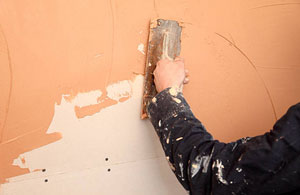
Ask to see a few photos of previously completed projects when meeting with prospective Crosscanonby plasterers, anyone that genuinely knows their stuff will be happy to do this, and have nothing to hide. This is not the sort of work you want to be giving to "cowboys". Poor quality plastering can result in huge complications later on, and it might not even be visible until the decorating starts.
When your newly plastered wall is given a splash of emulsion paint, any imperfections will quickly become noticeable. This effect will be even more accentuated when the defective surfaces are viewed in bright sunlight. There are lots of good plasterers in Crosscanonby, so be sure to pick a competent one.
Smooth and level are the primary attributes of plastering, because other materials will later be applied to it. It is very simple to fill and smooth off any little imperfections and cracks, but it's hard to hide fundamentally irregular plaster. Hassles with the installation of kitchen units, the tiling of wall surfaces, the painting and decorating of walls and ceilings and fitting skirting boards, can result from a badly plastered area.
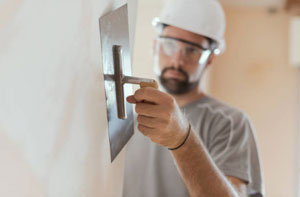
What you actually need is a perfect, polished finish directly from the trowel, and the best Crosscanonby plasterers can be expected to produce results like this. You should never have to sand down a plastered ceiling or wall apart from a brief rub down before decorating. If strenuous sanding is necessary, you can safely assume that your plastering hasn't been done properly. If you hear the buzz of electric sanding machines, you need to do a comprehensive quality assessment.
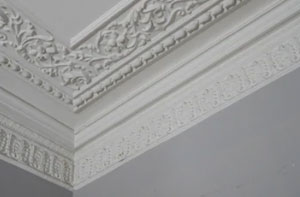
Nowadays, a common reason to call in a plasterer is to cover an artexed ceiling. The "in" finish for ceilings throughout the 1970's and 80's, artex is not so widely used in Crosscanonby today. To give your ceilings that fresh and modern look once more, most plasterers in Crosscanonby will be more than happy to cover them with plaster. If you are more retro in your taste, you may wish to give your currently smooth ceilings a little character by actually putting on some artex.
DIY Plastering Crosscanonby: When you've got a plastering project that needs to be done in Crosscanonby, you've really got two choices. You can either hire a professional plasterer to complete the task, or have a bash yourself. Unless you happen to be fairly good at do-it-yourself and have got the self-confidence to handle the job, it's probably best left to the specialists. Doing a test run on a spare bedroom or an out of sight area is certainly a great idea when you are setting out on your first plastering adventure. If at all possible try to pick an area that's already got a poor quality plastered surface, so that your amateurish efforts cannot make it any worse. This will enable you to test out your newly found skills and should be a lot less stressful than trying to do a wall surface that everybody will regularly see. It is possible to re-plaster a wall as many times as you want to a certain extent, and you can quite easily have another crack if you don't do an acceptable job the first time around.

If you do not wish to go to the lengths of taking a proper plastering course, you will be able to get some outstanding tips and advice by watching and following YouTube tutorials, although of course it is not always quite as easy as they sometimes make it seem in those videos. Plastering is a "hands on" process and the more you practice the more adept you become. By using trial and error you might even come up with you own strategies for getting that perfect finish. But if you are in any doubt, stick to the tried and true procedures. Self-confidence is the most crucial thing with plastering, and the more often you do it, the more confident you are apt to become. You can tackle some more challenging plastering work once you've perfected the art to a good standard. If everything goes awry and you make a mess of the plastering, it will still be possible hire a professional plasterer to correct your errors. Though he might not be best pleased that you didn't call him from the outset.
Artexing
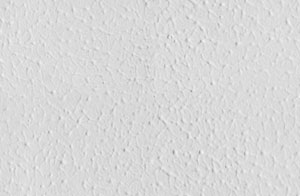
Artexing Crosscanonby: While most common during the 1970's and 1980's artex remains an easy way to enhance the look of ceilings, in particular cracked or shabby ones. Back in the day, there were so many people carrying out artexing it was pretty easy to locate someone offering this service in Crosscanonby. These days however, tracking down a plasterer who is prepared to tackle artexing isn't quite so straightforward. No doubt the large variety of designs was just what made it so widely loved, and everybody appeared to have their own favourite, be it hook & line, broken leather, circle, swirl, medusa, scroll, criss-cross, basket, pairs, bark or stipple. Artex patterns were available to match any preference or taste. It is of course still perfectly possible to get any of these artex ceiling patterns done today, you'll just have to locate a craftsman (a plasterer and not a handyman) ready to do it. The main disadvantage of artex, and what probably triggered its fall in popularity, is it's really difficult to patch or repair.
Plaster
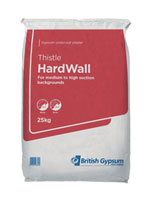
Used for decorating and protecting walls and ceilings in buildings, plaster is a material that's been in use since the days of the ancient Egyptians. What most people call "plaster" in Crosscanonby is normally thought of as the stuff which is used for covering the inner rooms of houses and buildings, whilst that which is used externally is called "render" or "rendering". Plaster blends generally contain either cement, lime, or gypsum, which all work in relatively similar ways. A dry, fine powder at the time of manufacture, when needed plaster is blended with water to produce a stiff but easy to work paste. The mixing of the plaster powder and water causes a reaction, and heat is produced through crystallization, making the resulting paste set. Specialist Crosscanonby plastering contractors will supply their own plaster products, however if you have to buy this yourself go to B&Q, Screwfix, Travis and Perkins, Wickes or British Gypsum. (Tags: Plastering Crosscanonby, Plaster Crosscanonby, Render Crosscanonby)
Re-Skimming Crosscanonby
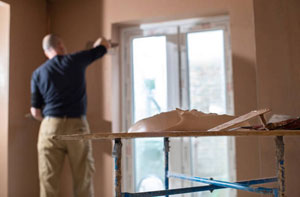
Plaster Skimming Crosscanonby: A thin layer of plaster trowelled over the top of old damaged plasterwork, plasterboard or unwanted artex is referred to as re-skimming or skimming. Plasterers are frequently asked to do this kind of task. Existing plasterwork can be damaged during home renovations, or new plasterboard walls may be built. A two coat plaster skim undertaken by experts will transform these imperfect surfaces into glass-like, smooth finishes which will be suitable for painting or wallpapering. Before you can decorate over it, you should leave it to dry thoroughly for a few days. You will end up with a totally fault-free and flat surface which will endure for years to come.
Plastering Tools
When plastering work needs to be done in Crosscanonby, most tradesmen and DIYers will find that they do not have all the tools that are essential to do a proper job. Which is the reason why in most cases a professional plasterer will be required for this sort of work. Here are merely a handful of the tools that a qualified Crosscanonby plasterer will make use of:
- Finishing Trowel
- Plasterer's Hawk
- Plaster Buckets & Pan
- Plaster Mixing Paddle
- Scarifier
- Feather Edge
- Jointing & Taping Knives
- Plasterer's Trowel
- Door & Board Lifter
- Edging Trowel
- Dry Lining Rasp
- Plastering Rule
Polished Plastering Crosscanonby
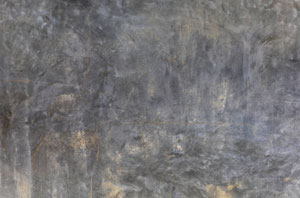
Polished plaster is a common name for the finish of some plasters and for the classification of updated forms of classic Italian plasterered finishes. The expression covers an entire assortment of ornamental plaster finishes - from the extremely highly polished Lucidato, Venetian plaster and Marmorino to the more rugged looking textured polished plasters. Delivering a finished surface that looks just like marble, limestone or travertine, polished plaster is chiefly used on inside ceilings and walls. It provides a feeling of depth by means of natural variations in shade while at the same time being smooth and sleek to the touch. Also, it is entirely possible to blend these types of plasters to create distinctive bespoke finishes. Polished plaster can be tinted or coloured by means of artificial or natural colourants. If you need to achieve "marbling" effects in your plaster, or completely unique designs or colours which don't exist naturally, the capability to add tinting to Venetian plaster is particularly advantageous. To read more about polished plaster, it would be a good idea to visit the Wikipedia polished plaster page.
Crosscanonby Plaster Patching
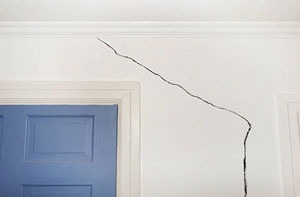
If you live in an older property, or have recently had some work carried out on your home in Crosscanonby, it's quite possible that you might have damaged or cracked plasterwork that needs patching or replacing. Since the plasterwork is a vital element of your wall's surface, you should keep it in good condition so it can be effectively decorated and kept looking nice. There is little worse than seeing cracks in plaster walls, or parts that are messy or sloppily repaired with Polyfilla. A first rate Crosscanonby plasterer will pretty quickly have your walls looking great once again, and you will be able to finish your painting and decorating and get them looking perfect once again. Different things can cause problems with your plaster finish settlement, vibration, dampness, shrinking and accidental damage. There's no point patching these areas before resolving any underlying problems, if you don't there'll most likely be a reccurence of the issue.
Decorative Plastering Services
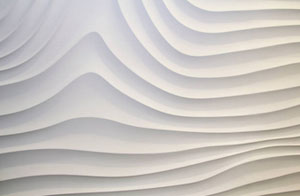
Decorative Plastering Crosscanonby: As a technique for protecting and embellishing surfaces, plastering has existed ever since the times of the ancient Greeks, Romans and Egyptians. The ingredients used would naturally have been different in those long forgotten days, when blends of both mud and clay would have been employed. In London during the 13th Century, a form of plaster was put on the interior walls of shops and buildings to help restrict fires from spreading. As you'll discover when you go to visit structures of this time period, decorative plaster of paris or gypsum mouldings and features were widely used in Victorian and Georgian times. Spectacular decorative effects by the use of modern materials coupled with age-old techniques can be created by specialist plasterers today. This could include the installation of brackets, ceiling roses, coving, cornices, niches, corbels and dentils.
Plasterboarding (Dry Lining)
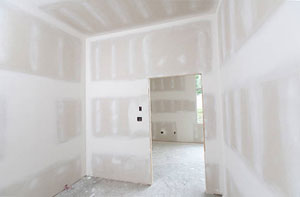
Dry lining (plasterboarding) is frequently required in home remodeling projects, and you should be able to find a few plasterers in Crosscanonby who can deliver this service. By mounting plasterboard onto a wooden studding, metal framing or a brick or masonry surface, a stable wall surface is produced which does not have to be plastered. Although in a few instances the plasterboard itself can be decorated (with a little extra preparation), a really smooth surface is created by applying a final skim of finishing plaster. In terms of fittings, when attaching to a metal Gypframe self-drilling, self tapping (Jack-Point screws) are used, when fixing to a brickwork wall "dot and dab" adhesive is used and when attaching plasterboard to wood joists or studding, nails or drywall screws are used.
Plasterer Crosscanonby
Exclusively working with plaster, a plasterer in Crosscanonby is a tradesperson who spreads a smooth, even coating of prepared plaster over an otherwise rough and uneven surface, so that it can be decorated with paint or other materials. Plastering has existed for many hundreds of years and has been a widely employed building repair and finishing technique for thousands more. These days, mainly applied to the inside of the outside walls of commercial and domestic buildings, plaster is used to produce an even and smooth surface that's ready to accept the final finishing material. Plaster can also be employed to make decorative mouldings which can be used to enhance walls and ceilings. Also frequently used in the finishing of porches, extensions, loft conversions and garages, plastering plays an essential role in lots of home revamping projects in Crosscanonby.
Plastering Tasks Crosscanonby

Crosscanonby plastering specialists will likely help you with lath and plaster walls, bonding, blown plaster, rendering with sand and cement in Crosscanonby, skirting board installation, Marmorino plaster Crosscanonby, floor levelling, artexing patterns and designs, fibrous plastering, drywall finishing, stucco plastering in Crosscanonby, dragged plaster Crosscanonby, float and set plastering, magnetic plastering, overskimming plaster walls, recessed TV walls, floor levelling and screeding, ceiling replacements Crosscanonby, relief plastering, stud partitions, flood and fire renovations, dot and dab walling in Crosscanonby, dry dashing, professional plasterers Crosscanonby, pebble dashing repairs, repairing holes in walls and ceilings, plastering over artex, tyrolean rendering, plastering renovation, external rendering and screeding Crosscanonby and other plastering work in Crosscanonby, Cumbria.
Crosscanonby Plastering Services
- Crosscanonby Soundproofing
- Crosscanonby Dry Lining
- Crosscanonby Rendering
- Crosscanonby Plastering Courses
- Crosscanonby Polished Plaster
- Crosscanonby Cornice Installation
- Crosscanonby Ceiling Replacements
- Crosscanonby Stud Partitioning
- Crosscanonby Artex Covering
- Crosscanonby Plastering
- Crosscanonby Plaster Patching
- Crosscanonby Plaster Repairs
- Crosscanonby Artexing
- Crosscanonby Domestic Plastering
Other Useful Trades in Crosscanonby Cumbria

Not surprisingly, whenever you're doing home improvements in Crosscanonby, Cumbria, you'll probably be in need of all kinds of different tradespeople and together with a plasterer in Crosscanonby, Cumbria, you might also need coving fitters in Crosscanonby, bricklayers in Crosscanonby, building contactors in Crosscanonby, polished plaster in Crosscanonby, external wall insulation in Crosscanonby, cleaners in Crosscanonby, artexing in Crosscanonby, dry lining in Crosscanonby, tiling in Crosscanonby, electric socket installation in Crosscanonby, internal rendering in Crosscanonby, plaster mouldings in Crosscanonby, carpenters in Crosscanonby, pebble dashers in Crosscanonby, rubbish removal in Crosscanonby, screeding specialists in Crosscanonby, painters and decorators in Crosscanonby or plasterboard installation in Crosscanonby.
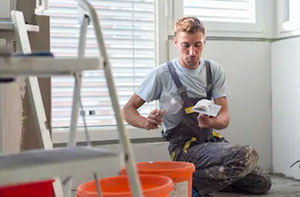 Plasterers Crosscanonby
Plasterers Crosscanonby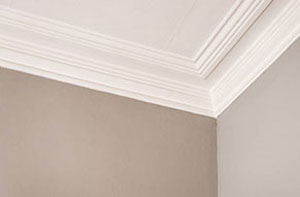 Plastering Near Crosscanonby
Plastering Near Crosscanonby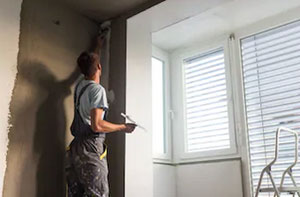 Plasterer Crosscanonby
Plasterer CrosscanonbyMore Cumbria plasterers: Workington Plasterers, Ulverston Plasterers, Whitehaven Plasterers, Maryport Plasterers, Millom Plasterers, Grasmere Plasterers, Cockermouth Plasterers, Kendal Plasterers, Wetheral Plasterers, Carlisle Plasterers, Wigton Plasterers, Penrith Plasterers, Keswick Plasterers, Egremont Plasterers, Grange-Over-Sands Plasterers, Cleator Moor Plasterers, Barrow-in-Furness Plasterers and Windermere Plasterers.
Plasterer Crosscanonby - Coving Crosscanonby - Decorative Plastering Crosscanonby - Cheap Plasterer Crosscanonby - Plastering Crosscanonby - Plaster Skimming Crosscanonby - Screeding Crosscanonby - Plasterboarding Crosscanonby - Plasterers Crosscanonby




